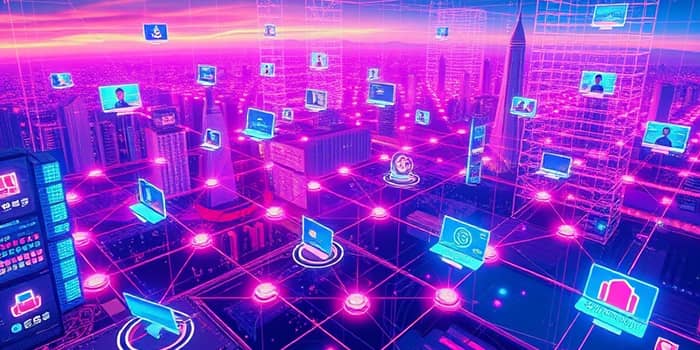In an era defined by rapid technological evolution, businesses must look beyond conventional web interactions. The future lies in interconnected platforms, intelligent agents, and adaptive ecosystems that transcend browser boundaries.
Defining “Beyond the Browser”
The concept of “Beyond the Browser” represents a paradigm shift from isolated online transactions toward fully integrated digital experiences. Companies now orchestrate services across devices, applications, and networks to create seamless value chains.
At its core, this shift embodies platform ecosystems, embedded services, and cross-industry collaborations that enable real-time engagement and deep customer relationships.
Emerging Digital Business Model Archetypes
As organizations evolve, several archetypes are emerging as the pillars of next-generation business design:
- Platform-based and Ecosystem Models
- Automation and AI-driven Models
- Edge, IoT, and Embedded Service Models
- Composable and Modular Business Models
- Cloud-native and Multi-cloud Strategies
Each archetype leverages specific assets—data, technology, or partnerships—to drive growth and resilience.
For instance, platform orchestrators such as Amazon and Apple cultivate hyper-connected, data-driven, and multi-modal business systems that lock in users through integrated value propositions.
Meanwhile, subscription and crowd-driven models emphasize recurring revenue and community engagement, supported by smart contracts and live data streams.
Pioneering Technologies Reshaping Digital Business
Technological breakthroughs are the engine behind this transformation. Key innovations include:
- Generative and Agentic AI
- Advanced Analytics and Big Data
- Edge Computing and Internet of Things (IoT)
- Digital Twin Simulations
- Quantum Computing Foundations
- Zero Trust Security Frameworks
- Low-code/No-code Development Platforms
These technologies fuel autonomous decision-making and workflow orchestration, empowering businesses to operate with minimal manual oversight and unprecedented speed.
Digital twins, for instance, offer real-time simulation, optimization, and asset management at scale, enabling predictive maintenance and smarter resource allocation.
Sector-Specific Applications and Transformation
Across industries, innovation is taking tailored forms:
In healthcare, edge computing supports critical care monitoring, while AI-driven diagnostics and patient digital twins improve treatment accuracy and operational efficiency.
Financial services rely on modular platforms for real-time asset management, AI agents for customer service, and blockchain-enabled subscription models for digital assets.
Manufacturing leaders adopt predictive maintenance and supply chain digital twins, achieving up to 30% uptime gains and significant cost reductions.
Organizational Shifts and Governance
To harness these opportunities, companies must cultivate an agile, digital-first ethos. Teams embrace iterative development, rapid prototyping, and continuous feedback loops.
Embedding continuous learning, cross-functional teamwork, and rapid change management ensures that innovation stays aligned with strategic goals and market needs.
Corporate Digital Responsibility (CDR) rises to prominence as organizations embed ethical AI, data privacy, and sustainability into their governance frameworks. Reskilling initiatives equip workforces to collaborate with advanced systems rather than compete against them.
Strategic and Ethical Frontiers
As digital boundaries dissolve, cross-industry partnerships become engines of breakthrough innovation. Fintech teams collaborate with retailers; healthcare providers join forces with tech firms to co-create solutions.
Leaders differentiate themselves through zero trust security frameworks and data governance that safeguard multi-platform operations against emerging threats.
Equally, sustainability and ethics drive consumer trust and regulatory compliance, weaving environmental, social, and governance (ESG) goals into every digital initiative.
Moving beyond the browser demands vision, adaptability, and a willingness to embrace both technology and humanity. By forging integrated ecosystems, leveraging intelligent automation, and prioritizing responsible innovation, organizations can capture the opportunities of tomorrow’s digital economy—today.
References
- https://www.simplilearn.com/digital-business-model-article
- https://www.bitcot.com/whats-next-in-digital-transformation-the-future-is-abaas-artificial-intelligence-and-blockchain-as-a-service/
- https://metrobi.com/blog/exploring-the-different-types-of-business-models/
- https://consultport.com/business-transformation/top-5-key-digital-trends-for-2025-and-beyond/
- https://www.prosci.com/blog/digital-transformation-trends-in-2025-and-beyond
- https://www.manpowergroup.co.uk/b_what-digital-businesses-look-like-in-2025-a-new-era-of-transformation/
- https://www.pagero.com/us/blog/what-is-business-digitalization
- https://www.mckinsey.com/capabilities/tech-and-ai/our-insights/the-top-trends-in-tech
- https://quixy.com/blog/examples-of-digital-transformation/
- https://www.beyondnow.com/en/insights/










